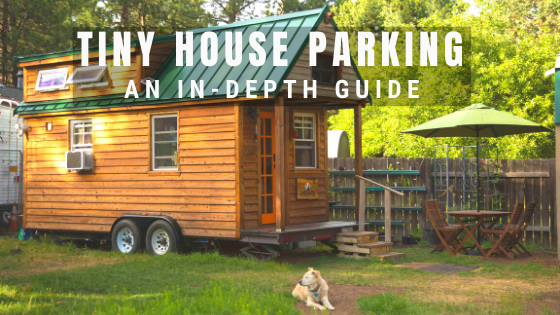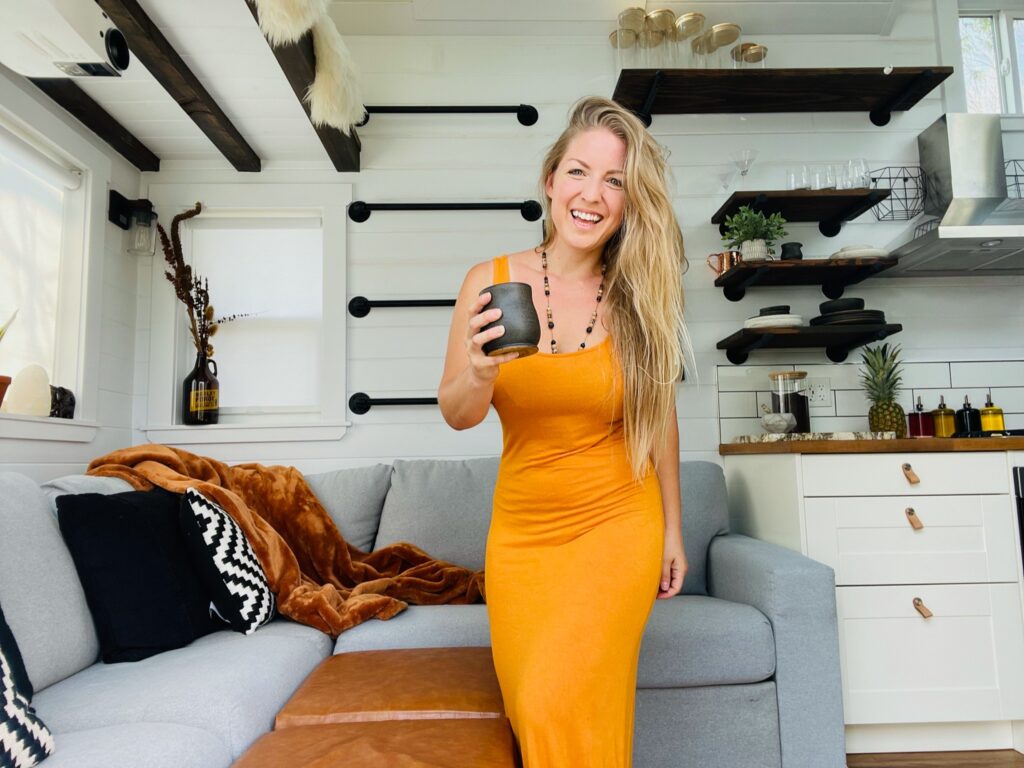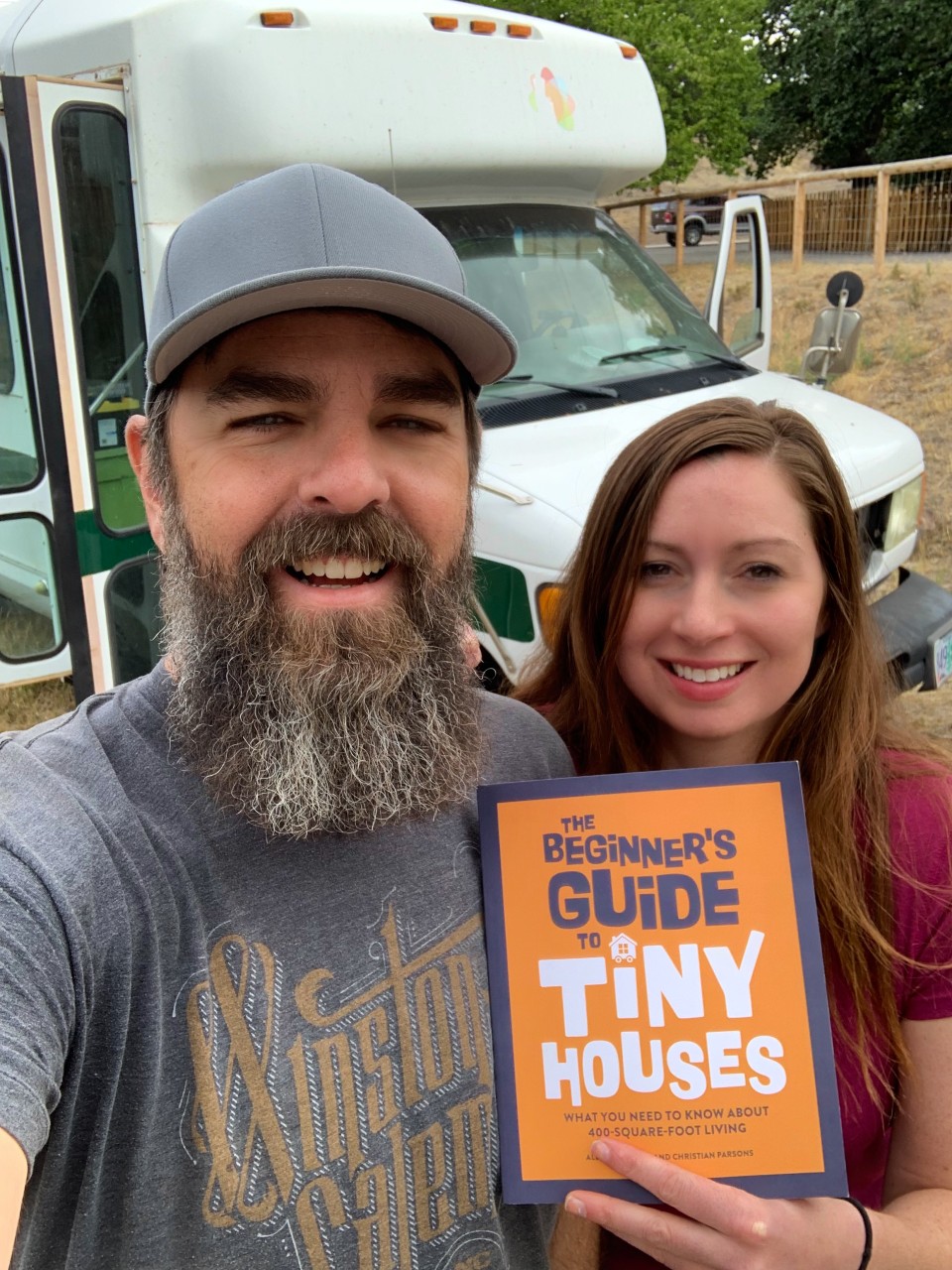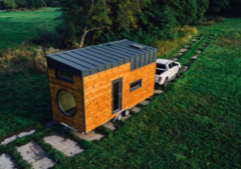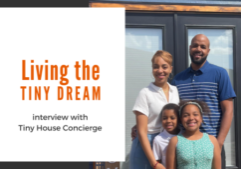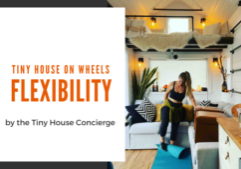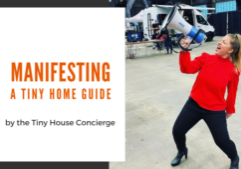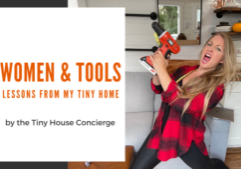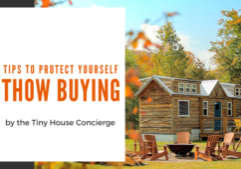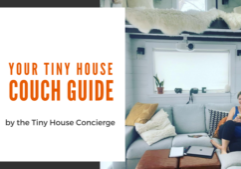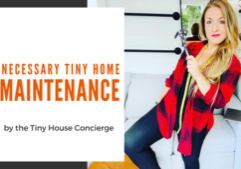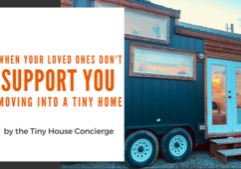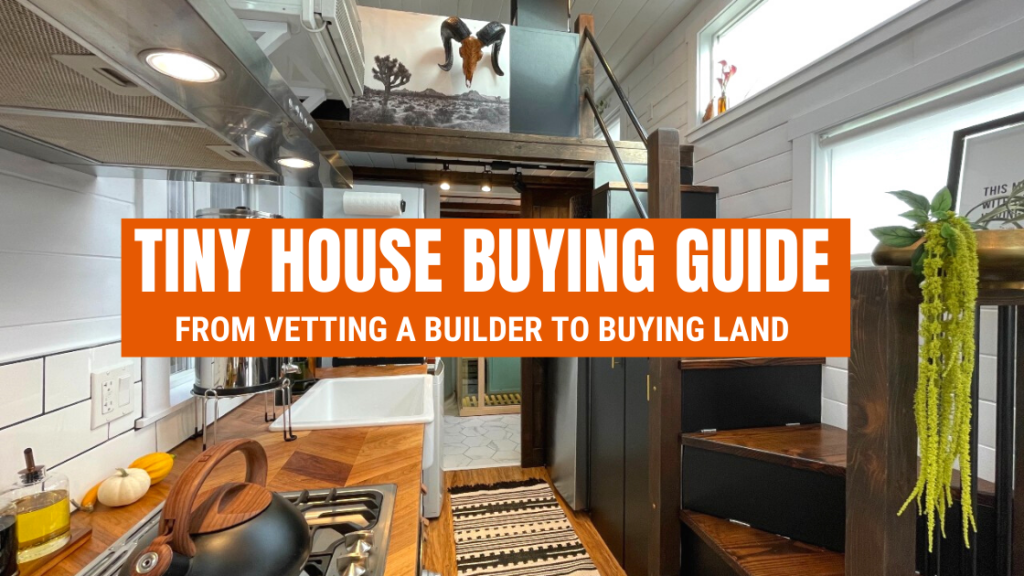
Tiny House Buying Guide to Protect Yourself: Tips from a Realtor
How To Protect Yourself While Buying A Tiny House — Guest Post by The Tiny House Concierge
Hello, Friends!
Welcome to part four of this five-part guest post series with a tiny house buying guide!
My name is Alaska, AKA, The Tiny House Concierge, and today we will be talking about how to protect yourself when purchasing a tiny home.
What makes me, as a Tiny House Concierge, particularly qualified to have this conversation? Well, I'm actually also a licensed realtor- who happens to live tiny!
Before you think you can skip the rest of this article because- problem solved, you can just call your tiny house realtor- you should know that I can't actually sell you a tiny house.
Tiny houses are considered personal property rather than real estate. This is because they are not (usually) affixed to land. Tiny homes built on permanent foundations can be an exception to this rule, but for the most part, tiny houses are not real estate, and realtors sell real estate. Purchasing land is another exception you'll want to speak with a qualified realtor about, but more on that later.
Keep scrolling for a tiny house buying guide meant to help you protect yourself and your money, from builders to land purchases.
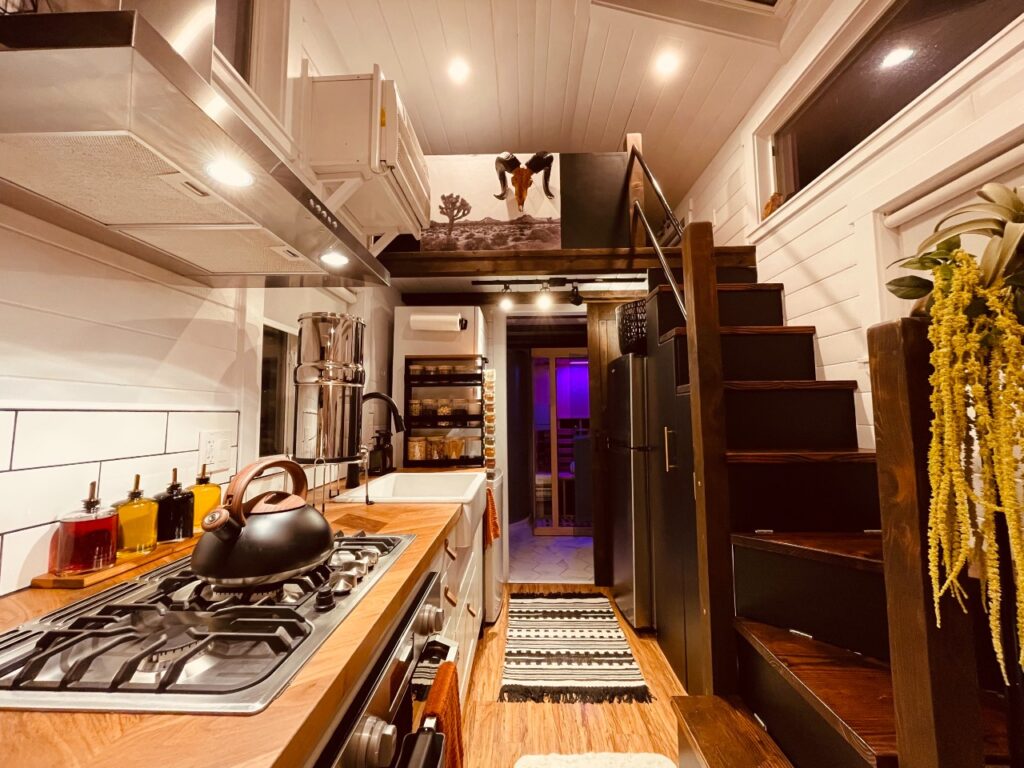
Tiny House Buying Guide from a Realtor
Like it or not, most people will be on their own when they purchase a tiny house. This is risky because there is a lot at stake. After all, tiny homes cost a good chunk of change and provide for a basic need! Without a realtor, it will fall on you to perform due diligence.
Performing due diligence means taking reasonable steps to evaluate the validity/soundness of a deal or for-sale object. It's a crucial step in your tiny house journey and one that many people overlook. However, to do it properly, we must first understand where we are in the evolution of the tiny house movement and our role in it.
For as many tiny houses as you see popping up on Pinterest, the reality is that the tiny home movement is still in the beginning stages. Everyone you see going tiny is a pioneer. Thanks to the earliest pioneers, there are internet forums and websites (like Tiny House Expedition!) to guide us, but there is still a sense in which this industry is The Wild West.
If we are going to be successful in going tiny, we have to understand this. The rules, regulations, protocol, and practices are currently being established. This means that things are constantly changing and are being handled differently in different places. If you feel like you find a lot of conflicting information when you try to research tiny houses, that's why.
So now what? It's easy to feel hopeless when you get to this stage of the equation. If you can't just buy a tiny house and pick up a permit on your way home from work, how in the heck are you supposed to go tiny?
Try to remember that people go tiny every day. It will take some effort, but it is possible. What's important is that you know how to protect yourself, and that starts with having a keen eye for tiny house sketchiness.
Tiny House Builders Everywhere But...
Tiny houses have gotten exponentially more popular in the last few years, creating a "gold rush" of sorts and bringing all kinds to the industry. Unfortunately, while there are high-quality builders to be found, many are mediocre at best. There are also tiny house builders who mean well but don't have the experience to hand you a quality product.
A tiny home is a house, so it's easy to see why so many builders think they can try their hand at one. After all, if they can build something that's five thousand square feet, shouldn't building something a fraction of the size be easier? Well, no. The small square footage and the fact that tiny houses are often movable means they require special considerations.
Inexperienced builders may not realize that tiny house appliances need to run on the thirty amps allotted by most tiny house parking spaces. And unless your builder has tried to find tiny house parking, how would they know it's about a thousand times easier with a waterless toilet option? Ventilation needs change, eyeline becomes more important, and you'll want a builder who doesn't just build to a single climate for a house designed to move! For all these reasons and more, it's critical that you purchase from a quality crafts-human.
Just so you can be on the lookout, here are a few of the tiny house problems people run into:
- The builder doesn't know how to build
- The builder doesn't know how to build a tiny house
- The build takes longer than promised
- The build costs more than promised
- The build is not built as promised
- The work is not done correctly
- The builder goes bankrupt mid-build
- The build does not come with the agreed-upon certifications
There are many horror stories out there, but if you understand what can go wrong, you will approach your research from a position of strength.
Now let's look at the things we want to ensure:
- That we get the house we expected
- That the house is safe
- That the house is legal
- That the house is owned by the seller and in the end is owned by us
- That we are going to be able to pay for, park, transport, and insure our tiny house without issue
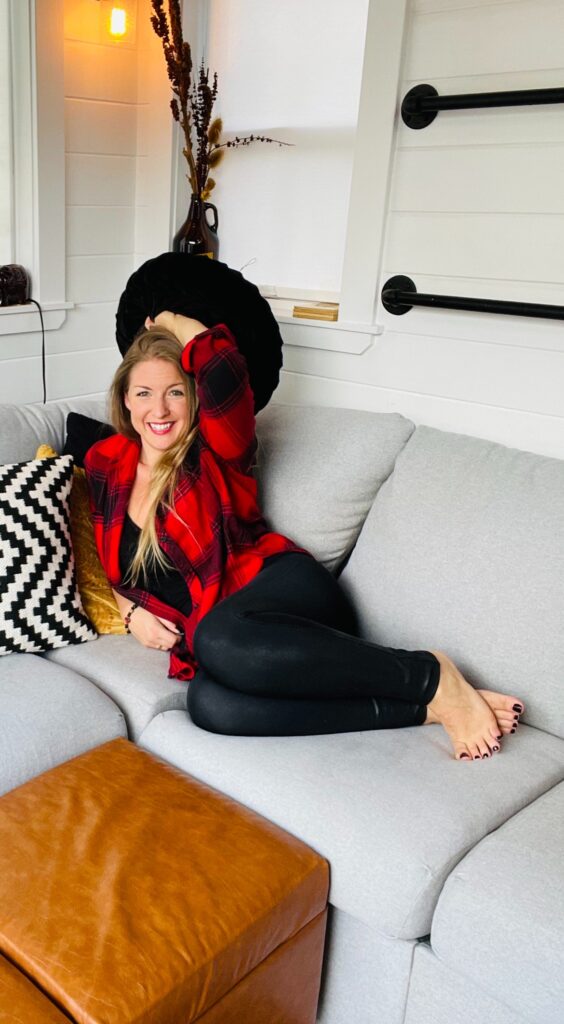
Don't lie down on the job--do your due diligence!
No tiny journey is without its mishaps, but here are some steps you can take to mitigate your risk.
Vet Your Builder
When it comes to vetting a builder, the internet is 100% your friend. Find out how many tiny houses your builder has built and what kind of reputation they have in the industry. Talk to past clients if you can. Do the houses have any issues? How was the communication during the build process? It's also worth checking to see if the company has changed hands or recently filed for bankruptcy.
Get Everything- Literally Everything- in Writing. Also, Take Pictures.
Whether you buy new, have built, or purchase a secondhand tiny house, paper trials can come in handy. Your builder should take pictures of the build process, and you'll want to get your hands on a copy of those photos as well. If anything goes wrong with the house, or if you have to prove build quality to meet legal requirements down the line, you'll need them.
While we're on this topic, I also recommend going to see your build in person. If your builder lives in another state, budget a trip or ask a friend to drive down to ensure the walk-in closet you paid for actually exists.
Get an Inspection
I bought my house in 2020, and I had to call several people before finding an inspector willing to look at a tiny home. Most inspectors are hesitant to touch something that doesn't fit neatly into their system. (How are they supposed to inspect the foundation of a tiny house on wheels, for instance?)
In the end, I found someone with a pioneering spirit. They charged me half their rate, and I threw in a fifty-dollar gift card for cheeseburgers—win/win.
Inspections not only double-check the work of your builder, but they may also teach you a thing or two about your house! For example, during mine, I learned that the rubber washers holding the corrugated metal (common tiny house siding) in place could break down in the elements. To prevent water damage, I would do well to replace them every few years. Who knew? The inspector did, that's who!
Consider a Mold Inspection
I'm listing this separately because most inspectors will only visually inspect exposed surfaces for mold. Small spaces become humid quickly, and this can turn into a serious mold problem if left unchecked. If you buy a model home that's been sitting or a secondhand tiny house, it could be worth a couple of hundred dollars to do some further testing. You don't want to find out the hard way that there was mold in the walls!
Know What Certifications You Want and Make Sure Your House Has Them
Third-party certifications speak to the fact that your house was built safely and legally. Not all insurance carriers/financiers/parking opportunities require certifications at this time. However, as the tiny home movement becomes mainstream, they could become more requested or even required.
Certifications get tricky because there are several, and no one knows how things will play out in the future. What if you move to a new city that favors a different certification than the one you have? What if the preferred certifications change as the industry moves forward?
These are valid questions, but it's an area in which we need to remember that we are pioneers. We don't know how these things will play out. What we do know is that certifications offer a level of assurance and are likely to play a more significant role as the movement progresses.
It's beyond the scope of this article to get into the finer points of certifications, but if you've been promised one, make sure you get it in writing before you put money down. It also couldn't hurt to call the certification company directly to make sure the certificate holds up.
Ensure Clear Title
When you buy a regular house, your realtor will work with a title company to ensure a "clear title." Clear title means that the person selling the home has the right to do so, that there are no errors in the paperwork, and that there is no one who could potentially try to lay claim to your house. The last thing you want is for a vengeful ex-spouse or estranged step-child to come out of the woodwork and insist they are the rightful owner of your tiny house baby!
Now, you can't exactly call a title company for assistance with this step. They don't have tiny house records. What you can do, is to run the VIN on your trailer through the DMV to make sure it is registered to the person from whom you're buying the house. (While you're at it, make sure you see the seller's driver's license to make sure they are who they say they are!) Once the transaction is complete, you'll want to get a new title issued in your name ASAP because you will be "on the books" as the new owner.
Pro tip: many DMVs require a visual inspection, so do this before you park your new house. Also, don't use the term "tiny house" at the DMV. Instead, tell them you want to register your "travel trailer." Technically, that's what tiny houses on wheels are- at least for now. Someday the world will catch up.
Do an Internet Deep Dive & Question the Neighbors
I bought my tiny house from a couple who decided to get into van life- or at least that's what they told me! In my case, it turned out to be true, but sometimes people lie. So get on Facebook, or Instagram, do some internet stalking, or knock on the neighbor's door and ask for the scoop. Is there family drama? Did the tiny house flood at some point? Did someone develop mysterious respiratory problems after living in the house? Hopefully, your inspector will catch anything crazy, but it can't hurt to get a fuller picture!
Tiny House Buying Guide: Land for Your Tiny Home
The list above is not all-inclusive. I wish I could protect you from every tiny house mishap, but alas, I cannot. However, if you follow all the steps, you will be much better off than the average tiny-house-buying Jane.
Now that we've covered house purchasing let's talk for a minute about buying land for your tiny home.
The dream of buying land and placing a tiny home on it is the kind of thing that can feel easy. Rural land is less expensive; tiny houses are smaller. The combination might seem like a cheaper and easier way to approach housing, but unfortunately, it's almost always more complicated.
For starters, most zoning areas have minimum square footage requirements that exceed the tiny house maximum of four hundred square feet. Planning departments often have difficulty accepting composting toilets, loft bedrooms, ladders used as stairs, and other common tiny house features in structures designed for full-time living.
Rural properties might have more lax zoning regulations, but you're also less likely to have easy access to utilities- which can be expensive to put in. Many would-be tiny houseers insist that that wouldn't mind off-grid living, but the reality of driving thirty miles round trip to fill up on water could easily catch up with many of us.
I hate to be the one to break this to you, but most of the people you see going tiny fall into one of three categories:
1) Are parked illegally
2) Are parked in RV parks
or
3) Have fought (and won) some tough battles.
The good news is that progress is made every single day. (Join the Tiny Home Industry Association to learn more and get involved.)
If you do decide you want to buy land, don't give up the dream, but please call a qualified realtor. If you decide you want to buy "raw land" (land that hasn't been developed and has no utilities), please call a realtor who specializes in that. Remember that tiny houses don't fall under a realtor's jurisdiction. Odds are you will know more about tiny homes than the realtor helping you buy land. So, if you go this route, make sure that your local planning department is on board. Again, get it in writing.
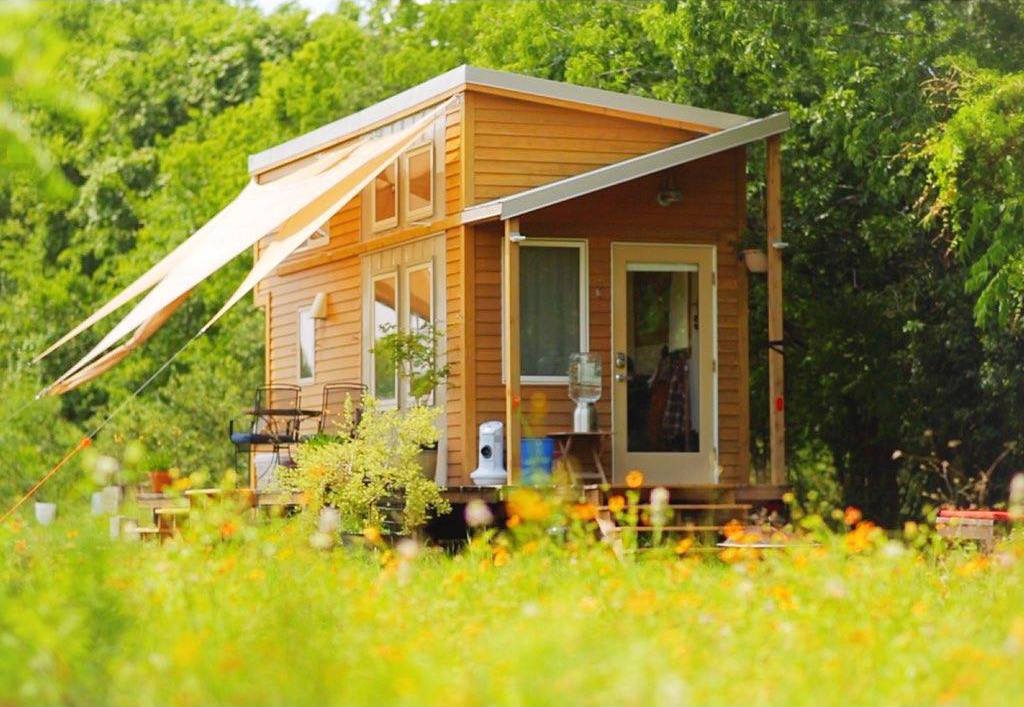
Avoiding Land Scams
We can't discuss buying land for tiny homes without bringing up scams. If you've been Googling how to purchase land for your tiny house, chances are you've come across websites offering you small patches of "tiny house land." These parcels are usually rural and often come with some alluring price tags, and these are tiny house "scams."
I call them "scams" because they can be, well, scammy, but I put the word in quotes because they are not necessarily illegal. There are many ways these scams can work, but here is one possible scenario.
Some scammers will call landowners who've defaulted on their taxes. The scammer gets the landowner to sign the deed over to them in exchange for paying the taxes. The scammer might tell the person in default something like I'll sell it back to you when you can afford the payments. The scammer then turns around and sells you "tiny house land." This land is usually so rural that the legality of your house won't be questioned.
Seller Financing
When you get to the property, there may or may not be someone living on it, and the former owner may or may not be expecting to get the property back at some point. By now, you've given a down payment to the scammer and will be the one responsible for paying the taxes. So far, nothing illegal has happened- the scammer legally obtained the property for no money and is legally selling it to you with what's called seller financing.
Seller financing is legal and can be a great way to purchase property, but it should only be used by experienced buyers working with a qualified team.
At this point, you have paid the down payment, are paying the taxes, and are making monthly payments to the scammer. But, here's the problem: the deed is still in the scammer's name. Without the deed, you don't own the property.
This puts you as the buyer at risk. Of course, it's possible that everything will turn out OK; maybe you'll pay off the land without any issues, and the seller will sign over the deed as promised. If they don't, however, remember that you've isolated yourself from the seller. Defending your right to the property in court could cost more than you paid for the property in the first place! Trust me- it could get so messy that walking away would easily be your best option!
I know the low price tags make these properties seem appealing, but please consider the risks associated with the red flags listed below.
1) You make a "down payment" online with a credit card. Down payments are typically handled by escrow services (a neutral 3rd party) until all terms of the deal have been met. By giving the down payment directly to the seller, you eliminate the "buffer" zone. If the seller doesn't come through on an aspect of the transaction, there's no one to help you sort it out.
2) The deed remains in the seller's name until the property is paid off. If you don't have a deed in your name, you don't own the property. Remember that you're paying money to a stranger you met online. Can you prove that they own the property? Can you confirm that your money is going toward the purchase of your exact parcel? Is there any official entity that is aware of the sale? Remember that you are not borrowing from a respected lending institution, but more likely, a few individuals hiding behind an LLC.
3) You are responsible for paying the taxes/assessments/fees etc. but are not allowed to develop the property until the debt is paid off. Sellers in these types of situations are sometimes betting on the fact that you will default. They obtained the property for free, remember? There are often clauses in the contract that forbid you to sell the property unless it's paid off in full. This means that if you cannot make the payments, you can't necessarily sell the property and keep the equity you have in it.
Instead, you would be forced to default, and the seller would keep your equity as well as the deed. They would then turn around and sell the property again. So, to recap, they paid nothing for the property and are making money off your very sink-or-swim situation.
4) They don't work with realtors. Friends, there is a reason I have a job. If someone won't work with your realtor, that's a red flag. Maybe they're trying to save a buck, or maybe they're doing something shady. Maybe they're accidentally doing something shady while trying to save a buck. Whatever the situation, it's not in your favor as the buyer, and it's definitely a red flag to consider.
Long story short, if a deal sounds too good to be true, it probably is- at least without the attachment of significant risk.
If you have struck a deal similar to the one described above, please don't beat yourself up. No one necessarily did anything wrong, but it's worth contacting a realtor or lawyer to understand how you might be vulnerable. They also may have some recommendations as to how you can protect yourself as you pay off the loan balance.
Tiny House Buying Guide Wrap-up
Whew! Alright, Friends, I know I brought up some serious issues in this article, but please do not let the risks discourage your dreams! The tiny house movement is making progress every day, thanks to awesome humans like you! In fact, by the time you are reading this tiny house buying guide, things will already be a (tiny!) bit easier!
I mentioned before that there is no such thing as a tiny house realtor, but as a realtor who lives in a tiny house, I'm happy to help you in any way I can. You can shoot me an email at: [email protected] or find me on Instagram: @tinyhouseconcierge.
In the meantime, be careful, get educated, and come join Team Tiny! It's a tricky life to set up, but I promise it's worth it!
Until next time,
-Alaska
*Realtor Disclaimer
The risks and safeguards mentioned in this article are by no means exhaustive. While I am A realtor, I am not YOUR realtor. I'm also not a licensed contractor, lawyer, title rep, planning department guru, or tiny house certification expert. You alone are responsible for your tiny journey. This industry is changing every day, and I encourage you to ask as many questions as possible while you boldly manifest your tiny house dreams. Remember to get it in writing.
Alaska is a writer, realtor, and tiny homeowner living in the great state of Colorado. She is the founder of The Tiny House Concierge, a company that provides education and consultation services for people looking to re-think their housing and re-write their lives. You can find her on Instagram: @tinyhouseconcierge.

